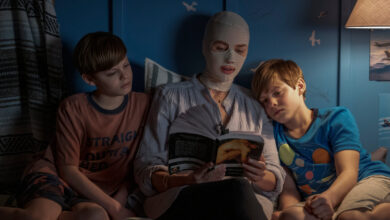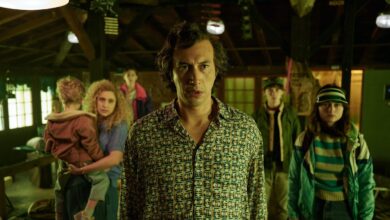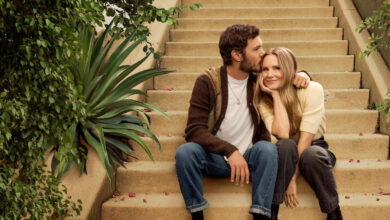The Son Review: Florian Zeller Returns In The Folds Of A Heartbreaking Family Drama (Venice 79)
Cast: Hugh Jackman, Laura Dern, Vanessa Kirby, Zen McGrath, Anthony Hopkins
Director: Florian Zeller
Filmyhype.com Ratings: 3.5/5 (three and a half star)
Florian Zeller continues his investigation of the family world with The Son, his second feature film after the success of The Father, which won an Academy Award for Best Non-Original Screenplay. His new work, in competition at the Venice Film Festival 2022, is based on a play by the director himself (as in the case of his first feature), who adapted it for the big screen with the help of Christopher. Hampton, with whom he had shared the statuette on the occasion of the previous film. It doesn’t fly, but for some people, it’s always there: high up. Unattainable, proud and exemplary like a great superhero. The first that every son or daughter meets on his path. The fate of fathers is strange: if they stay in the sky they cast too much shade, but if they fall or disappoint they struggle to get up.
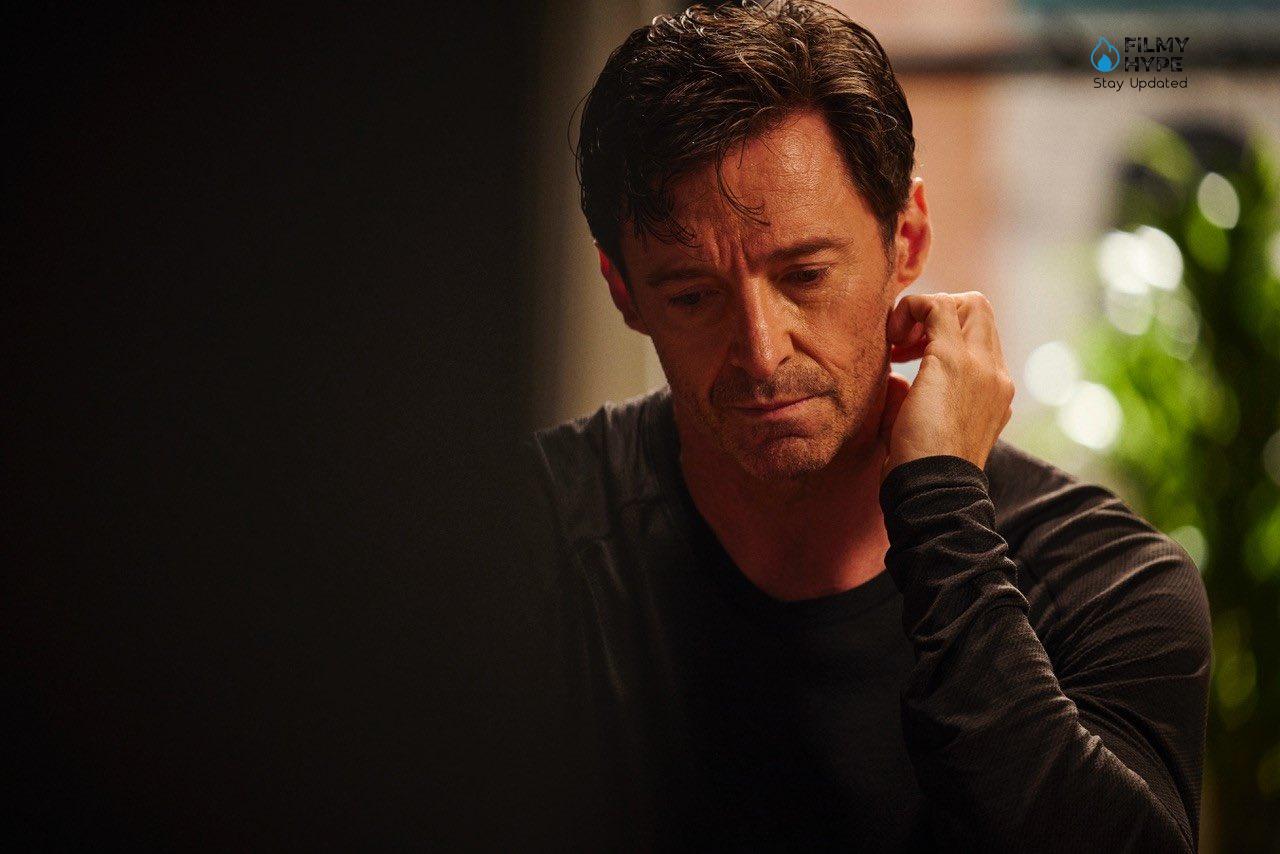
Florian Zeller knows it well, and he returns once again to explore the intricate realm of domestic affections just two years after the splendid The Father. We open our review of The Son by immediately recalling the surprising first work of a playwright turned director. An illustrious and at the same time uncomfortable precedent, just like the superhero fathers. Because The Father had told the story of sickness and senility by blending drama and psychological thriller with an enviable mastery, this The Son (linked to its predecessor since the title) welcomes his legacy with a great weight on his shoulders. A responsibility that Zeller manages with great naturalness, through a more canonical and classic work, but no less disruptive from an emotional point of view.
The Son Review: The Story
The Son is the story of Peter (Hugh Jackman), a successful man who has recently become a father again with his partner Beth (Vanessa Kirby). While living his dream of joining the team of a senator who aims for the White House, Peter is reminded of his parental duties when his ex-wife Kate (Laura Dern), whom the protagonist had left after falling in love with Beth, speaks to him worried of their son Nicholas (Zen McGrath). Withdrawn teenager who shares a house with his mother, the young man hasn’t attended school for some time and shows anger towards the world that worries Kate. Perpetually devoted to his career, Peter decides to welcome the boy into his new home, hoping to make up for lost time with the young man and to help him get out of the dark abyss in which he is.
We remain in the shadow of the fathers and start with a confrontation. The Father was a story in which memories disappeared, became confused and evaporated little by little. This time The Son, like a good rebellious son, does the exact opposite: he asks the past to come back to the surface. He succeeds Peter, an esteemed manager engulfed by work, struggling with a second marriage and a second child. A second chance interrupted by the sudden request for help from her first child, Nicholas, is problematic and difficult to manage. Peter is thus forced to take off the successful man’s jacket and roll up his sleeves as a father, thus having to face a series of mistakes made in the past and which, perhaps, can still be remedied. The Son is a slow tuning into old frequencies, a gradual and delicate recomposition of a father-son relationship in which, however, too many variables converge. Because Peter has a new family to look after, because the time spent away from Nicholas leaves scars, and above all, because Peter, perhaps, still has some ghosts in the closet.
The Son Review and Analysis
A ball difficult to unravel so is the familiar heart beating in The Son’s chest. A battered heart, in which family affections walk in a fragile balance between hope and despair, the desire to start over and resentments too big to overcome. A film that truly resembles a long psychotherapy session in which a father and a son (and maybe even some spectators) look their frailties in the face. On a dramaturgical level, Zeller is very skilled in weaving a canvas in which relationships are blurred, and the presumed family hierarchies are ready to fall. We understand this from the title, which opens up a double interpretation.
Because The Son at the center of the film is not only Nicholas, a soul in pain to decipher, but also Peter himself. A man who sees in his relationship with his son the son he was, the father he didn’t have and (above all) what he can’t be. A game of perennial projections that involve envelops and above all maintains a constant level of tension that anguishes him. A dangerous game in which Peter (a thoughtful and imploded Hugh Jackman) and Nicholas (a surprising Zen McGrath) walk hand in hand all the time, trying to reconcile the irreconcilable, peering into two different abysses. With his father struggling with a past full of regrets, and a son frightened by a future that is difficult to imagine.
You can smell the stage in the houses of The Son. Less claustrophobic and sophisticated in the staging of The Father (damn comparisons!), but always very theatrical in the recurrence of domestic spaces and in the renunciation of open spaces (which not by chance are confined to memories). It is once again a question of sofas to talk about, of living rooms to deal with, of rooms in which to close oneself to confront each other. Zeller confirms himself as a director who is very good at making rooms speak through furniture, but he is also an author who is attentive to the bodies on stage, their movements, gestures and the unspoken. In this sense, the choice of an inspired Hugh Jackman in the title role is very intelligent and meaningful. Because Jackman’s body, powerful and charismatic in always stealing the show, is a centralizer just like Peter. A man is always at the center of his world. A rational world is made up of simple answers to complex problems.
A body that is, despite a few too didactic passages, in which the characters underline in words things that are understood very well even without speaking, The Son excites and shakes with a dramatic film from start to finish. A work in which it is easy to reflect and be frightened. A work certainly less exciting than The Father, but which (just like The Father) takes note of an uncomfortable truth. Because where love ends and dies, sometimes there is no better glue than pain to return to feeling like a family. Zeller decides to set almost all of the title indoors, making the closure of the characters prisoners of their convictions and unable to communicate with each other.
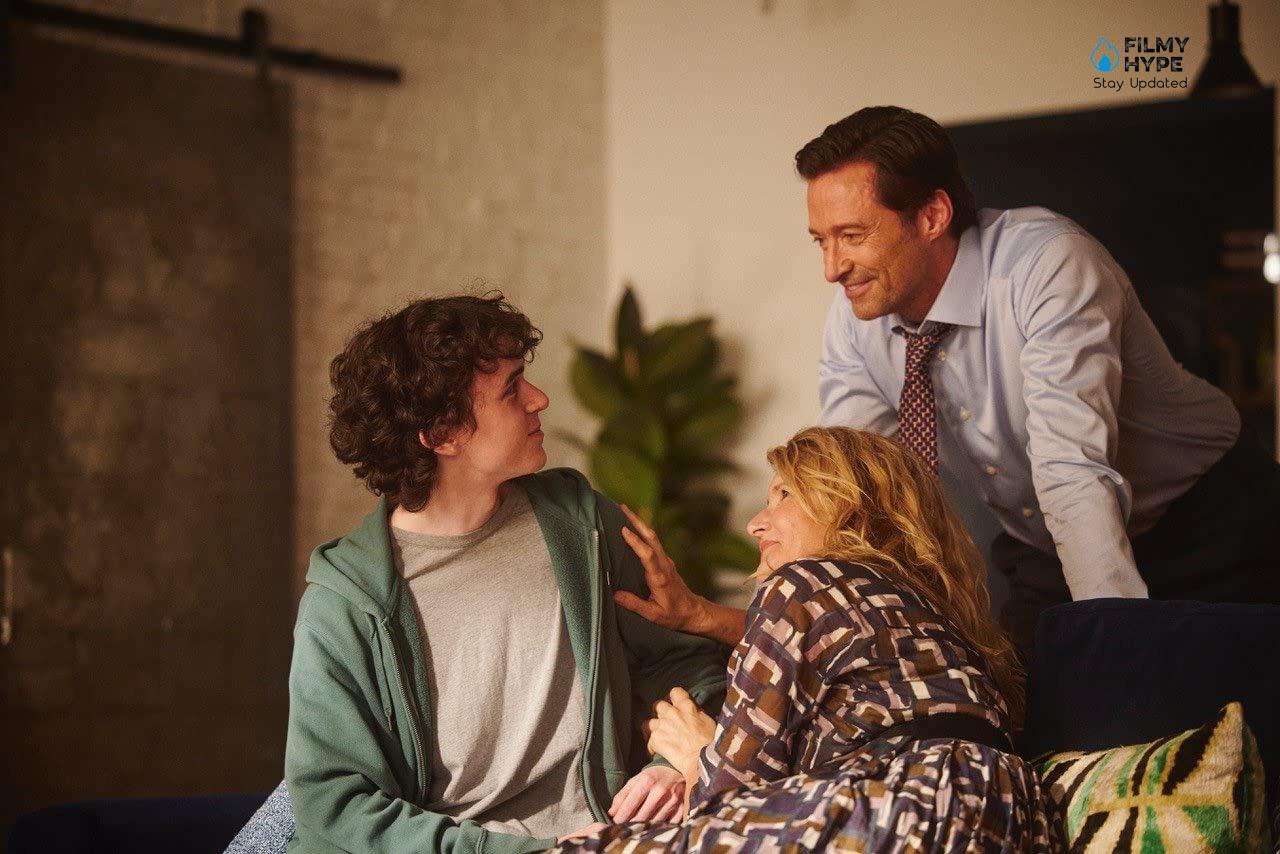
In particular, Peter looks at the city from the top of his office, located on the top floors of a skyscraper, very far from the life below and from its inhabitants, as well as from his son, who suffers from abandonment and paternal absence following his romantic getaway. A choice, that of man, taken without evaluating the consequences on the people close to him. It is exactly about the consequences that the film argues, dwelling above all on the results of actions, rather than on their fulfillment: we are not shown the origins of the love between Peter and Beth; we don’t see Nicholas cutting himself, seeing only his scars; the meeting between Peter and the senator takes place behind a closed door, but we understand that the politician has decided to welcome him into his team. The feeling of a life lived in his present comes only in the flashbacks, the only ones in the film, dedicated to the moments spent together by Peter and Nicholas during the latter’s childhood; a time that appears remote, during which the union between father and son was as great as the distance that now separates the two.
As in the case of his first work, Zeller transforms a story born for the theater through the language of film. In the case of The Father, the director used the medium of cinema to convey the sense of disorientation of the elderly protagonist suffering from senile dementia (to play him was Anthony Hopkins) with a staging that opened the doors to the life of the character with fragments of images. An intuition that justified the adaptation and that demonstrated how the French author wanted to exploit the tools granted by the seventh art in the passage from the stage to the screen. Compared to what was done on that occasion, The Son appears as a step backward for the director.
The aforementioned approaches add little to what was not already present in the theatrical performance and a general flatness weighs on Zeller’s direction, thanks to an incredibly glossy photograph and a camera that does little besides standing still, aseptic, in the room to fixedly capture the dramas of the characters. Hugh Jackman puts all of himself in the shoes of a parent struggling not to let his son slip into his hands, finding himself thinking about his role as a son, but the Australian actor does not have the strength of Anthony Hopkins (present in the film as Peter’s father) to make up for such a faded direction. What saves The Son is mainly a subject that paints the inevitability of depression, which slowly but surely swallows its victims like quicksand.
However, Zeller, as a director, does little to give the source material a reason to exist on the big screen, doing the bare minimum knowing that he can count on an intelligently selected cast and a theme that can easily hit like a punch in the stomach. . Portraying the parental one for the difficult job it is, studded with feelings of guilt and continuous questioning of one’s choices, the title will certainly know how to touch the hearts of many spectators, but it cannot help but disappoint for its reduced size cinematic value, unable to completely free himself from his theatrical derivation.
The Son Review: The Last Words
After The Father Florian Zeller again fits into the open wounds of a family drama full of anguish. The Son makes us experience a complex father-son relationship in which the past and future are uncomfortable places to imagine. Florian Zeller while not signing a new masterpiece like The Father, brings a smaller but more powerful story to the big screen with The Son. A story of parents and children, of shadows from the past, of helplessness and pain. A film that grows inside, dramatic and exciting that leads the viewer to immerse themselves in the difficult role of a parent put to the test both by a child and by life itself, underlining how requests for help can be presented in the most disparate ways.




